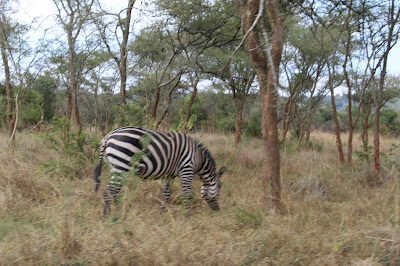As hate seems to reign
across the United States, I can’t help by reflect and compare my experience in
Rwanda with the current issues plaguing cities across the United States. Just
this past week, two black males were fatally shot in cities across the country
from each other, one in Baton Rouge, LA and the other in a suburb of St. Paul,
MI. A black male is THIRTEEN times more likely to be murdered in the United
States than his white counterpart, and 84% of those murders involve a firearm
(Huffington Post). In the past 6 months, 136 black people have been killed by
the American police force (Huffington Post). Then just last night, in my
hometown of Dallas, TX, 11 police officers were shot (5 killed) while escorting
protesters (Dallas Morning News). As the violence hits home for me, I can’t
help but alter my perspective on the BLM movement. Mobilization feels different
when those who died could’ve been your friends, your neighbors, your family. It
strikes a different chord. Thousands are protesting, black and white alike, but
this is not new. I could spend pages listing the black victims of police
violence, and that is not okay. But now it seems we begin a list of peaceful police
victims of BLM violence.
There is such an “us
versus them” mentality, black versus white, police versus civilian. I’d like to
contrast this with the past 6 weeks I’ve spend in Rwanda, a country
characterized by its 1994 Genocide (despite the fact that other genocides
occurred prior). It makes me wonder, at what point is enough, enough? At what
point do we decide that we are one? Rwanda’s country ‘motto’ per se is “One
Country, One People,” something I’ve felt Rwandans truly live by. Despite
living as a minority of the population, I have never felt safer. In any
situation that felt a little less than ideal, I could turn to my side and see
either five Rwandans watching what’s happening, ready to (or already) say or do
something, and then I could turn to my other side and see two police officers
also ready to intervene. To them, while I am an umuzungu (white person), I am
also a Rwandan. Therefore, despite having so little of a connection to the
country, I am a part of that ‘one people,’ granting me the same safety,
security, and trust that Rwandans now have in one another. Where did this trust
come from? In a country where neighbors have absolutely no reason to trust each
other, how is it that today there is such cohesion, such a sense of unity? I
truly believe that a lot of this unity came from powerful leadership by Paul
Kagame, having a leader that moved forward with a mentality of, “What happened
is not okay, and here is how we move forward.” We are one country, one people.
We are no different. As President Obama said at the NATO summit this past week,
“This is not a black issue. This is not a Hispanic issue. This is an American
issue.” There is mobilization, but there is so much more hesitancy, and even
more apathy. The answer is stricter gun laws. The answer is increased police
presence. The answer is less hate. The answer is love.
As one of my colleagues
working in Rwanda mentioned, though we’re returning to the U.S. soon, we don’t
have to be worried. We are white, therefore we are safe. In a country that for
so many years has served as a role model to other nations, a nation of
immigrants, a melting pot, we can’t seem to look at one another as equals. It
is difficult to be proud to be an American at this time. It is difficult to be
proud to be part of a nation with growing inequality, greater discrimination,
and rising levels of violence, not to mention a presidential candidate that
exacerbates white supremacist ideology. Issues that have been brushed under the
rug for years are finally surfacing, and we are not handling them the way we
are capable of, the way we should, the way we can. I’ve found that when people
in Rwanda ask me where I’m from, I pause before saying America, trying to
decide as to whether or not the judgement followed is worth it. I cannot comprehend,
let alone explain how the issues have come to be what they are now. It is
embarrassing. It is appalling. It is a disgrace. People ask if I’m excited to return
‘home.’ I don’t know if I am. But as I return home, I hope I can bring some of
the unity and some of the love that I’ve been so fortunate to witness in
Rwanda.
“Darkness cannot drive out darkness; only
light can do that. Hate cannot drive out hate; only love can do that.” –Martin
Luther King Junior
















